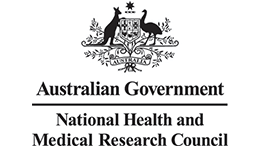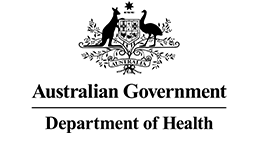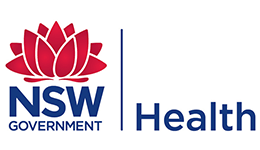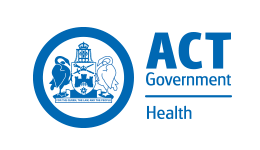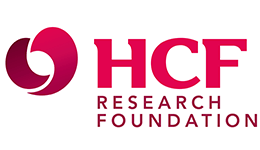Unlocking the potential of law to prevent chronic disease

Status completed
Start Date
End Date
Public health law remains an underutilised public health tool as a result of limited rigorous measurement and evaluation of the impact of public health law affecting the health of populations.
The implementation of effective and cost-effective public health law holds the potential to strengthen national capacity, leadership and governance in area of disease prevention.
Introduction
This PhD project investigated the impact of case law on the regulation of alcohol availability in Australia, conducted systematic reviews into topics including the effectiveness of ‘soft law’ or alternative legal systems, used qualitative methods such as case studies and stakeholder interviews to evaluate public health law interventions in terms of effectiveness and implementation.
Our research impact
Featured project resources
-
How can we use the law to prevent chronic disease?
Resource category:Findings Brief
Date
Featured project news
-
Bottleshops affect people’s health, so our laws need to reflect that
News Category: Media coverageDate -
Alcohol planning laws favour industry, not communities’ health
News Category: Prevention Centre NewsDate -
Communities losing ground in war against liquor giants: experts
News Category: Media coverageDate
About
The role of public health law in preventing chronic disease
Project titleWhat is the issue?
Public health law has delivered many of the most celebrated successes in health promotion globally including gun laws, mandatory seatbelt use in motor vehicles, excise taxes on alcohol and the plain packaging of tobacco.
Despite these successes, public health law remains an underutilised public health tool. One reason for this is that while governments have been able to employ effective legal responses to public health challenges, especially where interventions have clear measures of effectiveness (e.g. reduced smoking rates), there has been limited rigorous measurement and evaluation of the impact of the broad range of public health law affecting the health of populations.
Also, public health law comes in a number of guises including statute, government regulation, common law and ‘soft’ law, not all of which are well recognised. This means that policy makers often do not know what works in preventing chronic disease and which legal strategies have little, or unintended, effects. Consequently, policy makers lack the empirical evidence to justify significant public health policy changes.
How did the project address the issue?
This PhD project developed methods and processes to facilitate the evaluation of public health law’s impact.
The project :
- Investigated the impact of case law on the regulation of alcohol availability in Australia
- Conducted systematic reviews into topics including the effectiveness of ‘soft law’ or alternative legal systems (e.g. community-led alcohol restrictions)
- Used qualitative methods such as case studies and stakeholder interviews to evaluate public health law interventions in terms of effectiveness and implementation.
Relevance for practice
The project hypothesised that improving the generation and translation of evidence about public health law to cater for the complex needs of policy makers would help to garner the political support necessary to maximise the potential of powerful, acceptable and sustainable public health law in preventing chronic disease.
The project aimed to develop empirical research tools that policy makers and researchers can use to identify deficiencies in existing public health law (in terms of power, effectiveness, acceptability and sustainability), and to inform the design of legislative reform. These tools will build the capacity of those invested in prevention to respond to the epidemic of chronic disease with innovative, tailored and practical policy models.
Through this work, the implementation of effective and cost-effective public health law holds the potential to strengthen national capacity, leadership and governance in area of disease prevention, particularly in addressing the health inequalities suffered by disenfranchised and disadvantaged populations.
What were the outcomes?
- We identified a number of cases where public health arguments failed and decisions were made in favour of industry.
- We found that public health evidence was largely discounted as there was no clear basis in law on which it could be used.
- Using case law to evaluate public health laws enabled us to uncover the scope of the problem, identify the legal issues underpinning it, and show a way forward to ensure legislation fulfils its intended purpose.
News and media
-
Bottleshops affect people’s health, so our laws need to reflect that
News Category: Media coverageDate -
Alcohol planning laws favour industry, not communities’ health
News Category: Prevention Centre NewsDate -
Communities losing ground in war against liquor giants: experts
News Category: Media coverageDate -
Pro-competition legislation gives alcohol industry the upper hand: study
News Category: Prevention Centre NewsDate -
Meet Dr Jan Shanthosh
News Category: ProfilesDate
Other news and media
- ABC News 24: Local communities are losing the battle against big alcohol retailers
- The Wire: Study reveals legal favour for alcohol industry
- Croakey: Just Justice concerns: making global news and hitting the election trail
- Interview with National Radio
- The Australian: Better health options in prison for Indigenous
Resources
-
How can we use the law to prevent chronic disease?
Resource category:Findings Brief
Date
Publications
Other publications
2020
- Cook M, Livingston M, Wilkinson C, Shanthosh J, Morrison CN. Alcohol Industry vs. Public Health Presentations at Judicial Reviews of Liquor Licence Applications in Australia. International Journal of Drug Policy. 2020 Aug 1;82:102808.
Presentations
- How can public health law research methods strengthen the prevention agenda? Emerging Health Policy Research Conference 2017, Sydney, 27 July 2017
- How do the world’s Indigenous communities use law, culture and collective action to reduce alcohol-related harm?, ANU, Canberra, 10 August 2017,
- Emerging Health Policy Conference 2016, “How do Indigenous communities use public health law to control alcohol: a global systematic review”
- Healthier Law: How rigorous public health law can strengthen prevention policy, The Australian Prevention Partnership Centre, University of Sydney
- Judicial intervention in alcohol control, Menzies Centre for Health Policy, University of Sydney
- The role of law in shaping a culture of health, The George Institute for Global Health
- Effect of stroke and importance of driving in young survivors, The George Institute for Global Health
- Public Policy and Alcohol Controls in Indigenous Communities, University of Sydney Masters of International Public Health Mental Disorders in Global Context
- Judicial intervention in alcohol control: an analysis of case law, Emerging Health Policy Research Conference, Sydney, Australia, 21 July 2015









